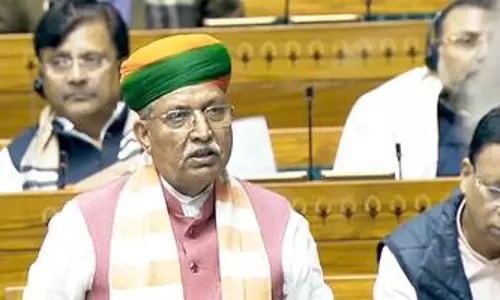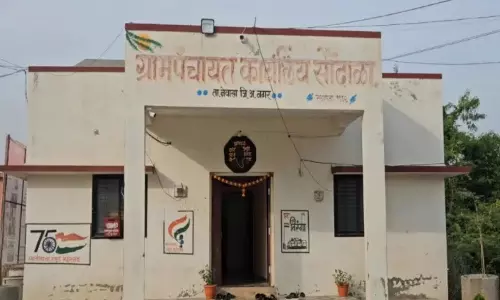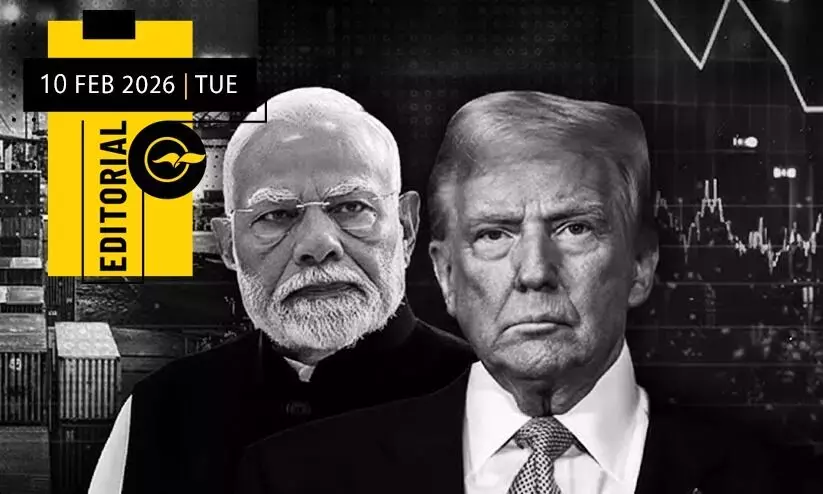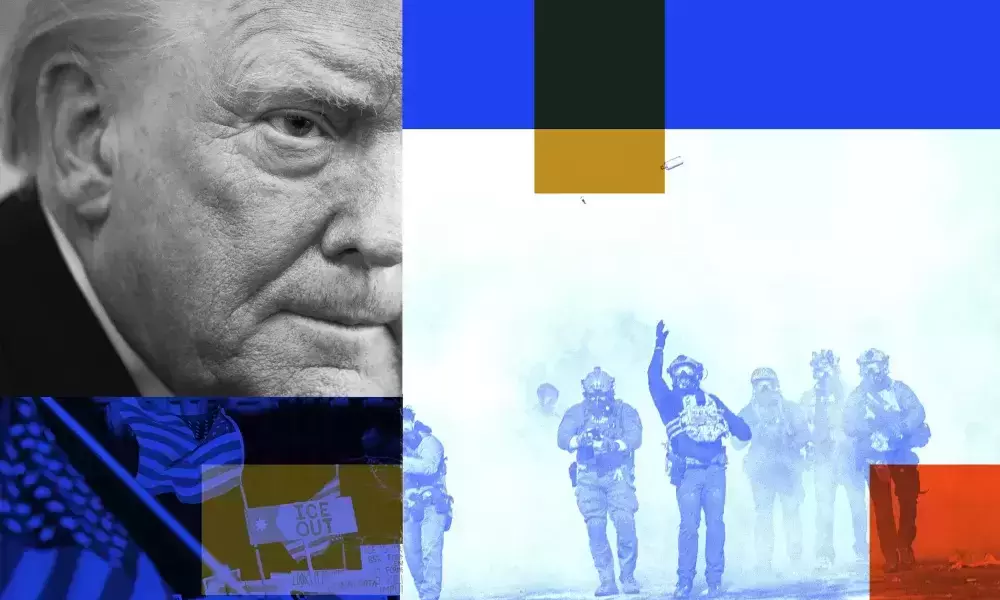
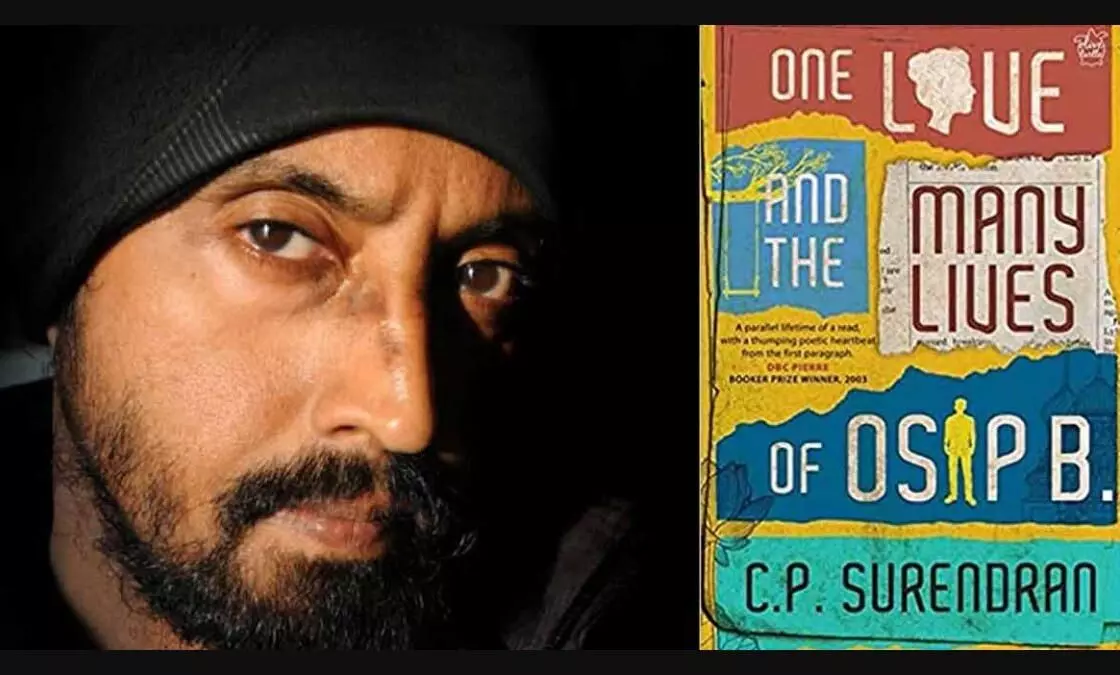
Osip B – a password to our times
text_fieldsIndia is at a precarious cliffhanger. As of July 11, Richard Branson and five other crewmates aboard the V.S.S. Unity launched private space travel, and so we now face the possibility of looking at human history on Planet Earth from the vantage point of another planet 25 years down the line. In the same vein, what will be the character of our own India 25 years hence? C P Surendran's latest novel, The One Love and Many Lives of Osip.B., stands as a password of our dicey times when the virus terrorises us, free-speech and democracy are under spyware surveillance, and the blatant nexus between religion, corporates, media and the state is out in the open.
The novel Osip shows the searing mirror to a 'dysfunctional' generation that is watching themselves fall unwittingly into the grips of fascism. We are all "suicidal voyeurs", the author says, relating a symbolic scene where people scramble out half-dressed and unprepared from a building that rattles and shakes in an earthquake and waits to see whether it will come down. Osip has eerie visions of battle tanks rolling past as he walks through an empty Connaught Place, making him wonder if the evacuation of the streets is for war or a lockdown in the face of contagion. He comes across a lone autorickshaw with the picture of the PM extending his hands in welcome, saying, "One India, One Mind." In India, the Leader is now omnipresent.
Even as the author meditates deeply on the discomfiting voices and noises of our times, he says, "the easier evil is the one outside of ourselves." Osip's "grandfather" could confront his own naïve allegiance to murderous politics, in Kerala, only after a visit to Russia. The name Osip, given upon adoption of the protagonist as a small boy from a boy's home, was initially given by the "grandfather" to evoke the memory of Josef Stalin, the dictator whom he worshipped. But after a visit to Russia, where he comes in intimate contact with a survivor of a Nazi concentration camp, he sees the real Stalin, "the muse of mass murders" who decreed famines, wars and purges against his own people. Thereafter, the same name Osip of the boy becomes a symbol of the Russian poet Osip Mandelstam, exiled to a corrective labour camp under the Stalin regime. Thus the author plays with the inversion of tropes in the very name of his central character Osip, holding up the mirror that plays the trick of how "the fake is real and seeing is not believing" to tell us how we Indians, in this day and age, are slipping by the day into an era of dictatorship. Through Osip, the author is showing the readers our own fragmentations and dysfunctionality, "our moment-to-moment metamorphosis, and turns us victim, as well as the victor, in our daily lives."
The mass murders committed by Stalin, the bloodshed in the early days of the Communist Party in Kerala and the violent ideology of Hindutva politics in India today – the violence merely gets resurrected in new forms each time.
The author's evocative narration dwells on the protagonist Osip's many young-adult obsessions, uncertainties, insecurities and environs that extend from Thrissur in Kerala, to his Kasauli residential school in the Himalayas, to Delhi, "with the discrete charms of the Delhi bourgeoisie" to Oxford University, where he walks into an academic seminar and poses a transgressive question on Kashmir. He gets Elizabeth Hill, his teen obsession, to travel back with him to India and get a job in a Delhi newspaper. A mere intern, he is asked to take charge of the newspaper when Delhi newsrooms have transformed into apolitical spaces amplifying the government-approved news and keeping out any news on the Opposition. Conscientious newspersons find it difficult to keep their jobs; they are termed 'anti-nationals', demoralised and laid off. As the young Osip momentarily hesitates in jumping at the offer of his first job, the newspaper Chairman tells him, "Leadership is a readiness to commit violence first and then stick to it." The novel is searingly political.
Osip is a politically and morally troubling read as it rubs in how the paradigms have shifted so fast and effortlessly under our very noses, despite "all the pretences we played at". In the current milieu, what do we owe our dysfunctionality to?
This is embodied in the question that protagonist Osip's father figure-cum-writer Arjun Bedi's wife confronts him with, precisely when he is entertaining a house full of mostly fawning guests, "Do you believe in anything? at all?" The questions thrown at the readers skewer us.
The writer picks up the story thread from the generation of the protagonist's Communist 'grandfather', a party legend of sorts in Kerala, with whom Osip spends his childhood. Osip remembers waiting with his 'grandfather' in a picturesque Thrissur paddy field, the dark green leaves swaying in the cool winds under a brooding monsoon sky, when three men, one of them carrying a bloodied axe, walks up to the "grandfather" and cryptically informs him that the job is done; he instructs them to go into hiding for a while. To save Osip from his influence, grandma Gloria Innaley sends him off to a residential school. In contrast, she herself reappears later in the novel, in the process of writing a hagiography of her legendary husband, filling the book with "grandiose half-truths."
Arjun Bedi and many characters and happenings in the novel are loosely modelled on familiar personalities in the Delhi newspaper and party circles. The turbaned Arjun Bedi, an eminent Delhi writer and columnist, is like a father figure to Osip. His entire body of work gets cancelled due to the MeToo allegations. Through the character of Arjun Bedi, CP Surendran seems, in a first significant attempt, to lay down a man's perspective, and problematizes the social media assault that equalizes "minor" indiscretions that happen in drunken parties to more blatant physical assaults. Arjun says, "soon men and women will form secret societies and circulate documents and studies on each other. That's where it's all going. The Estranged Gender Era."
In the novel, we gather images of all the players in the unholy alliances of our times, in our godmen and yoga gurus, social media that thrives on the invasion of privacy, journalism disfigured by considerations of revenue and circulation, refugees fleeing geopolitical unrest of which nobody takes responsibility, happiness kept intact by an ecosystem of blackmails, Muslim boys fearing to return to their hometowns where their father's killers might be lying in wait, Hindutva violence on women, gender dynamics within marriages – in short, it is a world where nobody knows where they can return home to peace or safety, and everybody lives with a heavy sense of apocalypse. Surendran's work is a searing fictional history of our dangerous and unpredictable cross-wired juncture.
(Leena Mariam Koshy is an independent writer based in Kozhikode, Kerala.)








